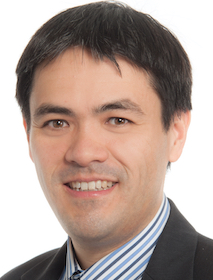-In recent years, much advancement has been made in our understanding of the immuno-pathogenesis of psoriasis, Il2 signaling, modulates the activation of Th17 cells and thus the production of Il17 and Il22. This has been shown to be a key pathway in psoriasis generation.
–Ustekinumab (Stelara, Janssen-Cilag) is an inhibitor of Il 12/23, targeting the p40 subunit which is common to both interleukins. The PASI 75 from the clinical studies show improvement in the range of 67-71%, and the 5-year safety data for this biologic is reassuring .
-Recently, it has received FDA approval for use in Psoriatric Arthritis. Newer biologics in the market include the Il17A inhibitor, secukinumab, and this has recently been approved in Singapore.
-Biologics blocking Il17a, including ixekizumab (Elli Lilly), secukinumab (Cosentyx, Novartis) and brodalumab (Amgen, withdrawn May 2015, restarted September 2015 (Valeant Pharmaceuticals)) have shown PASI 75 improvements of between 86 to 90%. Drugs in development showing significant promise include the Il23 inhibitors.
–Guselkumab, and BI655066, which are p19/Il23 inhibitors, have shown PASI 75 improvements of over 90% in phase 2 studies. The impressive efficacy of the biologics targeting the Il23 pathway shows that this immune pathway is a key immune-pathogenic pathway in psoriasis.
-Other advances in psoriasis treatment include the development of the so called small molecules.
Apremilast (Otezla, Celgene) has recently received FDA approval for treatment of psoriasis and psoriatic arthritis Apremilast is a PDE4 inhibitor and inhibition of this leads to increased intracellular cAMP production which down-regulates the inflammatory responses of Th1 and Th17 and type 1 interferon pathways. This is the 1st new oral medication developed for psoriasis since 1996 (Cyclosporine).
Janus kinase inhibition has also been shown to be an effective therapy for psoriasis. Tofacitinib (Xeljanz, Pfizer), a JAK3 inhibitor blocks the signalling of key cytokines involved in the inflammatory pathway of psoriasis. Results of phase III studies (Opt 1 and Opt 2) show PASI75 improvement in to 59.2% and 59.6% in patients on 10mg oral tofacitinib at week 16 of treatment. Phase 2 studies are underway at time of publication.
There are many new and promising treatments for psoriasis. The key to developing new treatments in psoriasis is a better understanding of the immuno-pathogenesis of psoriasis.
Theng C. Advances in Psoriasis Management. NSC Update in Dermatology and Venereology 2015 – Singapore




 +41 22 738 18 48
+41 22 738 18 48